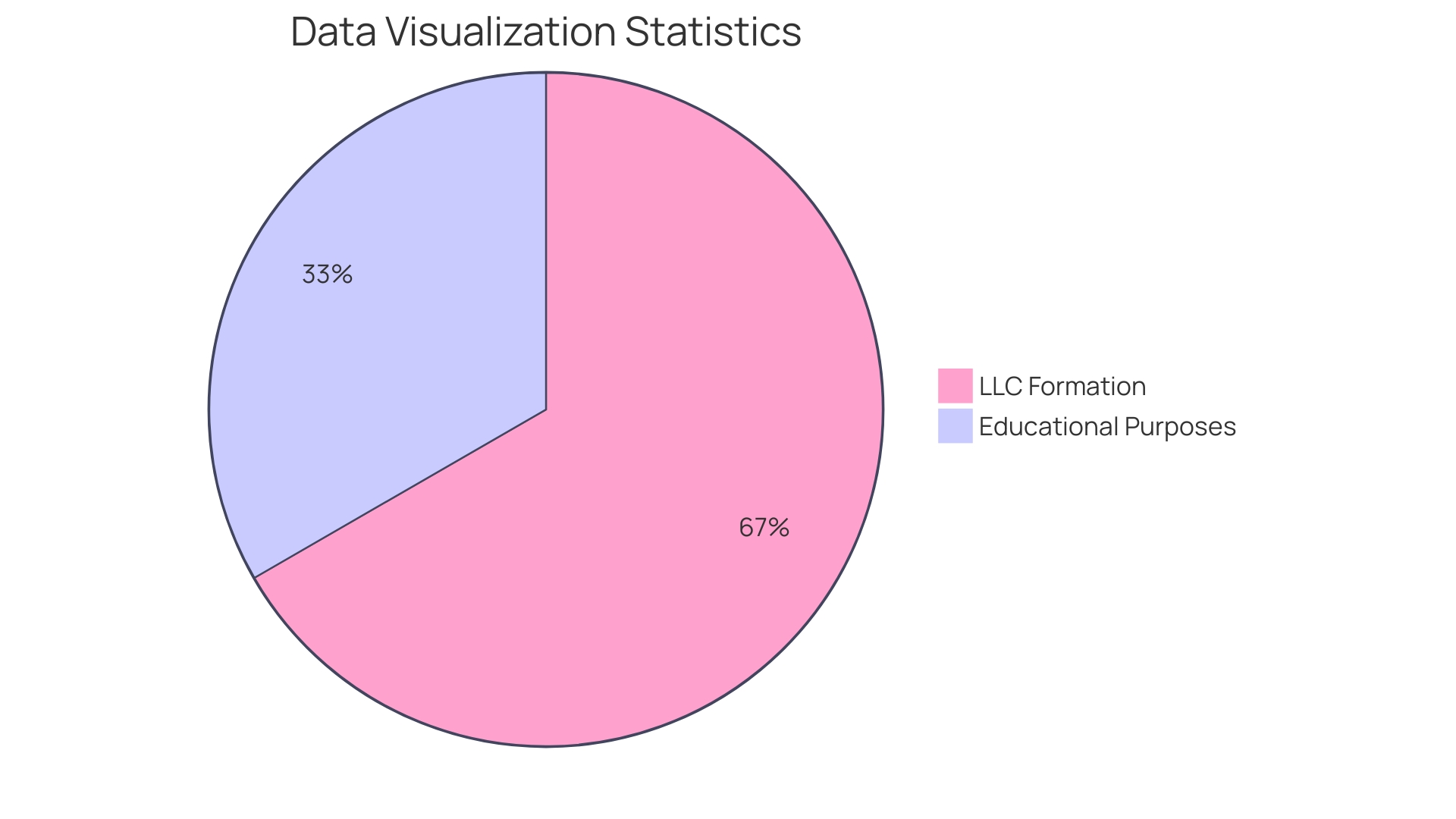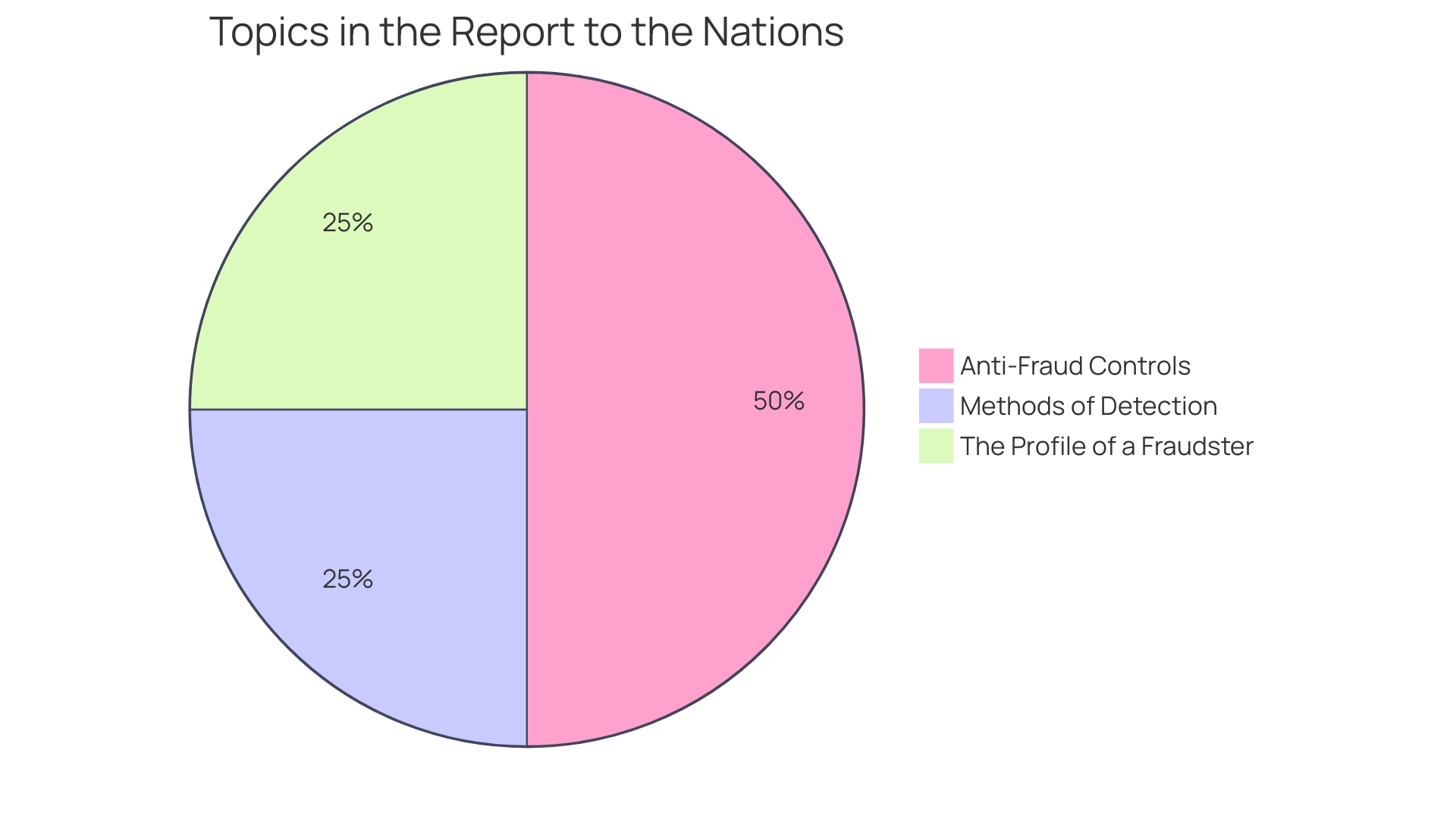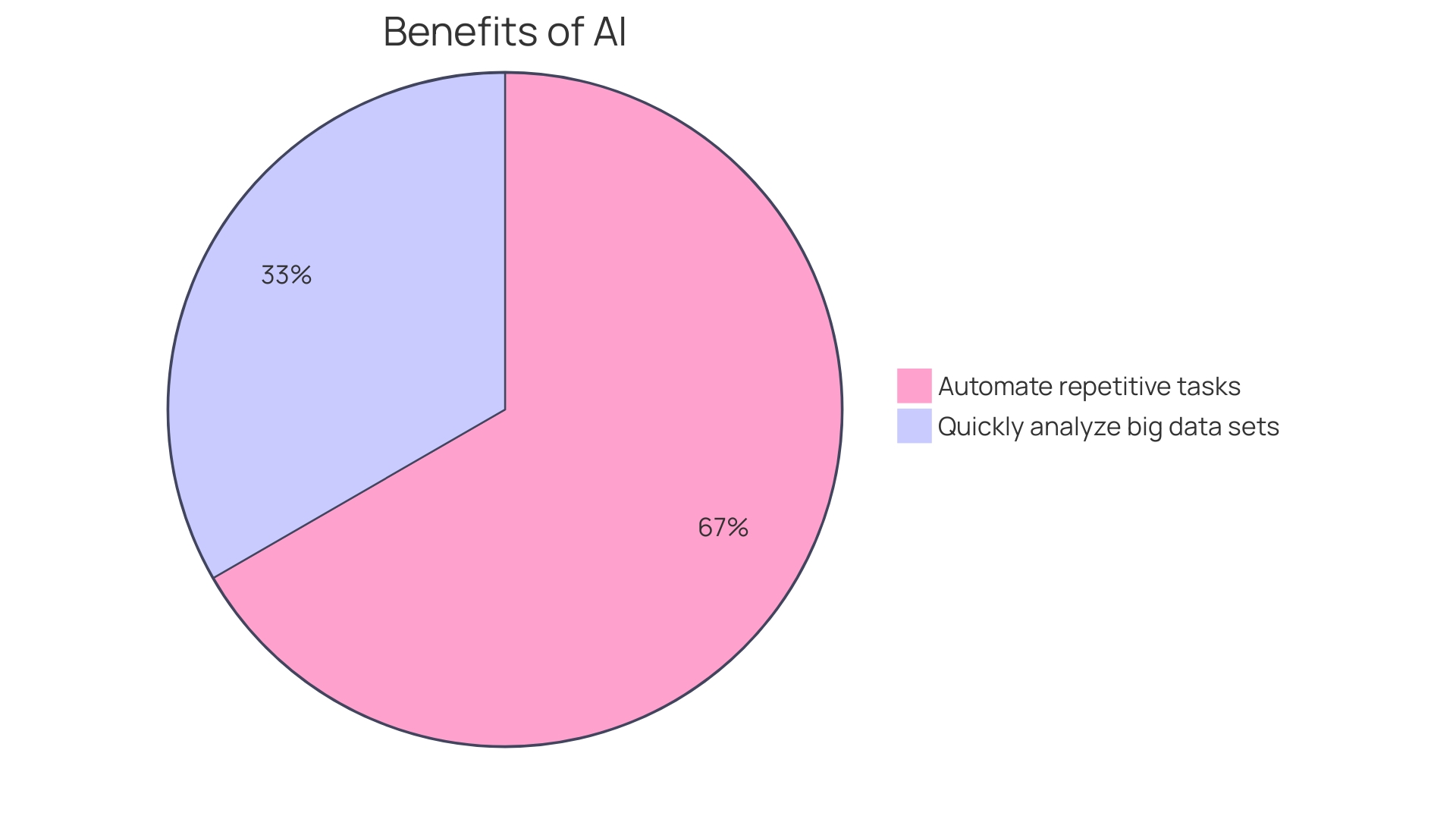Introduction
Accounting services are vital for any business, providing a range of functions from bookkeeping to the crafting of financial statements. These services offer insights and foresight to fuel informed business decisions. In today's fast-paced financial environment, the distinction between bookkeeping and accounting is crucial, with accountants producing financial statements that track money movement and summarize revenues and expenses.
Staying ahead in the economic landscape requires robust and adaptable accounting software. Preparation and market analysis are indispensable for firms delving into accounting services. The value of accounting services transcends mere number-crunching; it is about interpreting the narrative behind the numbers, enabling businesses to make strategic decisions.
Definition and Scope of Accounting Services
Accounting services are the foundation of any organization, providing a range of essential functions that span from the meticulous task of bookkeeping to the strategic creation of statements related to finances. These services are not just about compliance or record-keeping; they offer insights and foresight to fuel informed decisions. At the core of efficient bookkeeping lies the administration and comprehensive examination of monetary information, guaranteeing accuracy and adherence to the most recent regulations.
For modern businesses, particularly small and medium-sized enterprises, the differentiation between bookkeeping and the financial management process is crucial. Bookkeeping focuses on the accurate recording of transactions, a foundational activity that sets the stage for the broader scope of accounting. Accountants take this data further, producing statements like cash flow analysis, balance sheets, and income statements. These documents offer snapshots of economic well-being, tracking money movement, and summarizing revenues and expenses.
In today's fast-paced financial environment, staying ahead requires software that is both robust and adaptable. With the rise of SaaS (Software as a Service), even smaller firms can access enterprise-grade features, allowing them to compete with larger corporations. The integration of extension marketplaces and developer portals into financial software empowers firms to customize their experience and maximize efficiency.
The economic landscape poses challenges and opportunities for accountants and their clients. With fluctuating inflation rates and the cost of borrowing reaching significant highs, profitability can be impacted. Nevertheless, firms that embrace technological advancements can navigate these economic waters more effectively, creating resilience even in tight economies.
Thorough preparation and market analysis are essential initial steps for firms venturing into financial services. Examining the demand, potential client base, and competition, while ensuring appropriate legal and tax adherence, establishes the groundwork for a robust plan and a prosperous venture in finance.
Ultimately, the value of accounting services transcends mere number-crunching. It is about understanding the story behind the numbers, allowing organizations to make strategic choices that promote growth and stability.

Types of Accounting Services
Accounting services encompass a spectrum of practices essential to the governance and insight of any business. From the careful recording of transactions in bookkeeping to the thoughtful analysis involved in management, each service plays a distinct role in money management. Let's delve into some key types:
-
Bookkeeping is the foundational layer of accounting, where every financial transaction is systematically recorded. It's the groundwork that enables all other accounting functions, serving as a critical tool for maintaining accurate records.
-
Reporting is the creation of core statements. These include income statements that track profitability, balance sheets that outline assets and liabilities, and cash flow statements that monitor the liquidity of the business. Collectively, they provide a complete overview of a company's standing.
-
Tax Accounting is focused on navigating the complexities of tax legislation. It involves calculating tax obligations, filing returns, and identifying opportunities to optimize tax liabilities, ensuring compliance with tax laws, and leveraging deductions effectively.
-
Auditing provides an objective examination of records to ensure accuracy and adherence to established accounting standards. Auditors examine documents related to finances to confirm their dependability, providing assurance of the company's representations.
-
Management Accounting is strategic. It combines monetary information to assist management in making informed decisions. It supports the development of business strategies by providing insights on cost control, pricing, capital investment, and potential growth pathways.
-
Forensic Accounting entails the detailed examination of records for indications of embezzlement or deceit. Forensic accountants play a pivotal role in legal proceedings, dissecting complex economic data to uncover and articulate monetary discrepancies and anomalies.
With the ever-expanding sophistication of statement deception schemes and the vast amounts of intricate economic data generated by modern businesses, the need for advanced economic management services is greater than ever. Detecting fraud requires not only a thorough understanding of a company's operations and internal controls but also the ability to navigate and analyze extensive monetary information.
The digital economy further emphasizes the significance of strong financial services. As businesses increasingly engage in e-commerce and digital services, the requirement for precise and compliant management becomes acute. The interplay of ICT infrastructure and e-commerce demands meticulous practices to ensure stability and growth.
In the ever-changing field of finance, experts must be skilled at managing a wide variety of monetary responsibilities. From preparing statements that guide small decisions to employing advanced software for efficient bookkeeping, the role of in driving success is undeniable. Whether it's by examining a balance sheet to assess a company's liquidity or utilizing expertise in detecting monetary crimes, each service in the field is crucial for the integrity and progress of a business's economic well-being.
Role of Forensic Accounting in Fraud Detection
Forensic investigation is a domain that goes beyond the mere examination of monetary records; it's the careful unraveling of economic enigmas to uncover deceit and misappropriation. Armed with a combination of accounting expertise and investigative intuition, forensic accountants analyze complex data to identify inconsistencies and locate fraudulent activities. They skillfully navigate the intricate web of monetary transactions, much like the way a detective peels back the layers of a crime scene to find the truth. Their analytical expertise is essential in identifying concealed assets and evaluating the scale of misappropriation.
As economic deception expands more complex, with wrongdoers leveraging extensive understanding of company operations and control systems, the significance of forensic accountants becomes increasingly crucial. They face a variety of sophisticated fraud schemes that are intricately integrated into the fabric of legitimate reporting, making detection without specialized skills nearly impossible. The sheer volume and complexity of financial data in today's business environment present additional hurdles. Transactions involving multiple subsidiaries and diverse financial treatments can obscure fraudulent transactions, requiring advanced analytical tools to penetrate the noise.
Given the ever-changing character of deception, the necessity for a subtle method to detect deception is highlighted by instances such as the robbery at Geneva's Museum of Far Eastern Art. Here, the importance of forensic accounting in interpreting the aftermath of criminal acts becomes clear. Moreover, reports emphasize the increasing reliance on technology and data analytics, highlighting how essential it is for fraud detection models to evolve from simply tracking transactions to understanding the behaviors and motives behind them.
In the end, forensic accountants not only detect the 'fingerprints' left on the statements but also aim to create a complete image of the crime, ensuring that the entities they assist can strengthen their defenses and bounce back from the setbacks caused by deceitful activities.
Benefits of Forensic Accounting in Local Government
Forensic accounting plays a pivotal role in enhancing the integrity and accountability of local governments. The specialized skill set of forensic accountants is crucial in uncovering and addressing monetary irregularities, ultimately safeguarding public resources.
- Uncovering Deceit: Forensic accountants are instrumental in detecting and investigating complex misconduct within local governments. Their expertise lays the groundwork for uncovering illicit activities such as embezzlement and bribery, contributing to a culture of integrity.
- Promoting Fiscal Responsibility: The diligent work of forensic accountants ensures that every dollar is accounted for, fostering a transparent environment where public funds are managed with utmost scrutiny and care.
- Reclaiming Public Assets: In the unfortunate event of fiscal malfeasance, forensic accountants are adept at tracing and recouping misused funds, mitigating the impact of such acts on community resources and services. Preventing Financial Misconduct: The incorporation of forensic accounting measures acts as a potent discouragement against deception, strengthening a proactive approach to monetary administration within local government structures.
For example, Leicester City Council has leveraged data strategically to enhance transparency across its departments, demonstrating the positive outcomes of a data-centric approach in public service delivery. Similarly, Cedar Rapids' proactive stance in the wake of a natural disaster showcases the importance of dynamic and forward-thinking financial strategies.
Meanwhile, recent trends show an uptick in auditor-detected deception, emphasizing the need for continued vigilance. The 2024 Report to the Nations highlights an increased reliance on technology and data analytics in detecting illicit activities, underscoring the evolving landscape of forensic accounting.
Statistics emphasize the urgency of this matter, with the United States experiencing a high rate of fraud victims, and phishing being the most prevalent form. This further validates the necessity of strong monetary safeguards and the crucial role of forensic accountants in mitigating such risks.
In summary, the diverse advantages of forensic analysis surpass mere monetary recuperation; they strengthen the fundamental pillars of trust and stewardship that support effective local management.
How Forensic Accounting Services Help Combat Fraud and Bribery
Forensic accounting services are essential tools in the battle against crimes such as fraud and bribery, utilizing a systematic approach to identify, analyze, and interpret intricate data. These experts examine records to uncover inconsistencies and patterns that may reveal fraudulent behavior or bribery attempts. Their thorough work includes the collection and preservation of both monetary and non-monetary evidence that is critical for legal proceedings, thereby aiding in the prosecution of perpetrators.
By performing meticulous calculations of losses resulting from illicit activities, forensic accountants offer precise estimations crucial for litigation. When cases escalate to the courtroom, these accountants step into the role of expert witnesses. They explain the complexities of misconduct in a way that can be understood by judges and juries, thereby shedding light on the monetary consequences of the case at hand.
The changing nature of financial statement manipulation, which now includes intricate schemes involving cryptocurrencies and transactions outside traditional exchanges, emphasizes the requirement for sophisticated tools and expert analysis. For example, the law firm Challenge De Grandpre© Chait sought the assistance of Chainalysis to navigate the complexities of cryptocurrency-related cases, demonstrating the convergence of traditional forensic financial analysis with state-of-the-art technology.
With deceivers leveraging profound understanding of company operations and data analytics becoming increasingly crucial in deception detection, the proficiency of forensic accountants has never been more critical. Their skill in comprehending the intricacies of the double-entry financial system, as explained in 'Asian Financial Statement Analysis,' and their role in grasping and conveying the immense consequences of corruption, estimated to result in a worldwide economic loss of $2.6 trillion, are invaluable in preserving economic integrity and public trust.
Trends and Patterns in Accounting Fraud
As our economic ecosystems become more interconnected and reliant on technology, the scenery of fraudulent practices in finance is rapidly transforming. Cybersecurity threats pose a significant risk to record-keeping systems, with cyber-attacks and data breaches potentially leading to fraudulent activities and distorted statements. The art of 'creative accounting' is another tactic wherein statements are manipulated, giving a misleading picture of a company's health.
Revenue recognition manipulation is also widespread, where the timing or acknowledgment of revenue is altered to artificially enhance performance, thereby deceiving investors and stakeholders. Insider dishonesty remains a crucial worry, with employees who have access to monetary systems occasionally misappropriating funds or manipulating records. Furthermore, bribery and corruption continue to plague accounting practices, with financial gains or favors being exchanged for illicit advantages.
These trends are underscored by a series of case studies and reports, such as a recent tech support scam where individuals posed as Microsoft representatives to deceive victims, indicative of the sophisticated methods employed by fraudsters. The Report to the Nations on Occupational Fraud and Abuse highlights that over half of occupational frauds can be attributed to inadequate internal controls or their circumvention. It emphasizes the importance of effective anti-fraud controls and vigilance.
In the struggle against such deception, enterprises must stay vigilant and proactive. This includes implementing stringent internal controls, leveraging technology and data analytics to detect irregularities, and considering forensic accounting services when necessary. Sophisticated tools are necessary to navigate the volume and complexity of financial data in contemporary enterprises, as conventional analysis approaches may be insufficient for uncovering well-hidden fraudulent schemes.
The importance of tackling these challenges is evident in the attitudes of consumers and businesses alike, with a substantial portion expressing worry over online security and the risk of deception. As fraudsters continue to adapt and evolve their tactics, a continuous commitment to innovation in fraud detection and prevention is quintessential for safeguarding organizational integrity and consumer trust.

Impact of Data Analytics on Accounting Services
- Enhanced Decision-Making and Strategic Planning: Leveraging Ai's advanced algorithms and machine learning, accountants can sift through massive datasets to uncover valuable patterns and trends. This leads to more informed decision-making and strategic planning, which is critical in the complex economic landscape.
- Reduction of Human Error and Fraud: Ai's ability to process data with precision eliminates many of the mistakes inherent in manual accounting. Additionally, it can detect irregularities that may indicate fraudulent activities, thus safeguarding the company's finances. Projection and Risk Assessment: Predictive analytics powered by AI provides accountants with forecasts on monetary trends and potential risks. This proactive approach is invaluable for aligning monetary strategies with future market developments. AI can identify inefficiencies and unnecessary expenses within a company's operations, streamlining operational costs. By addressing these areas, companies can optimize their spending and improve their overall financial health.
- Adapting to Technological Advances: The acquisition of Alteryx by Clearlake and Insight Partners for $4.4 billion highlights the industry's move towards privatization and dedication to evolving data analytics capabilities.
Data analytics, especially when bolstered by AI, transforms accounting services from traditional number-crunching to a dynamic and crucial part of business strategy, ensuring companies are not only compliant but also competitively positioned.

Conclusion
Accounting services provide vital insights and foresight for businesses, enabling informed decision-making. The distinction between bookkeeping and accounting is crucial, with adaptable software essential in the fast-paced financial environment. Forensic accounting plays a pivotal role in uncovering financial irregularities and enhancing the financial integrity of local governments.
To combat evolving accounting fraud, businesses must be proactive, implementing controls and leveraging technology. Data analytics transforms accounting services, enabling more informed decisions and strategic planning. In summary, accounting services go beyond compliance, interpreting the narrative behind the numbers to drive growth and stability for businesses.




